RURAL UPLIFTMENT
Pals — the project sowing the seeds of success among emerging farmers
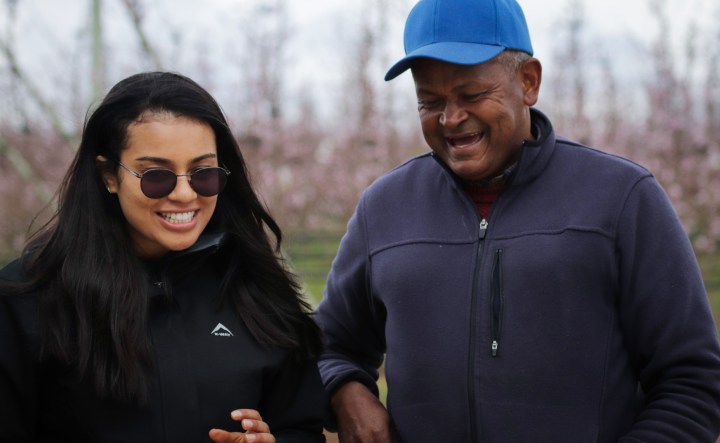
A tour of farm projects by emerging commercial black farmers shows the growth and challenges in sharing the custodianship of the planet through sustainable agricultural transformation.
The farm projects by Partners in Agri Land Solutions (Pals) are aligned with the sentiment that agriculture is one of the more effective sectors in reducing poverty and protects against the impacts of climate change, welfare outcomes, food insecurity and malnutrition.
This was said by Wandile Sihlobo, chief economist of the Agricultural Business Chamber of South Africa, when he delivered the keynote address at the Pals AGM in the picturesque Koue Bokkeveld above the Ceres Valley on Thursday, 24 August.

Wandile Sihlobo, chief economist of the Agricultural Business Chamber of South Africa (Agbiz), delivered the keynote address at the Witzenburg Pals AGM. (Photo: Ziyanda Duba)
Pals is a private initiative by farmers in cooperation with the Ceres community, working to reform agricultural land ownership, economic growth, job creation and social harmony with a radical departure from past land-reform models.
Gerrit van Vuuren, Pals’ strategic adviser, explains their vision of training emerging black farmers to become successful commercial farmers. This connects established farmers with new-era farmers, the private sector and the government, municipalities and communities to ultimately empower rural communities with sustainable structured agricultural development.
Sihlobo said growth in agriculture is in general two to three times more effective at reducing poverty than an equivalent amount of growth generated outside agriculture.
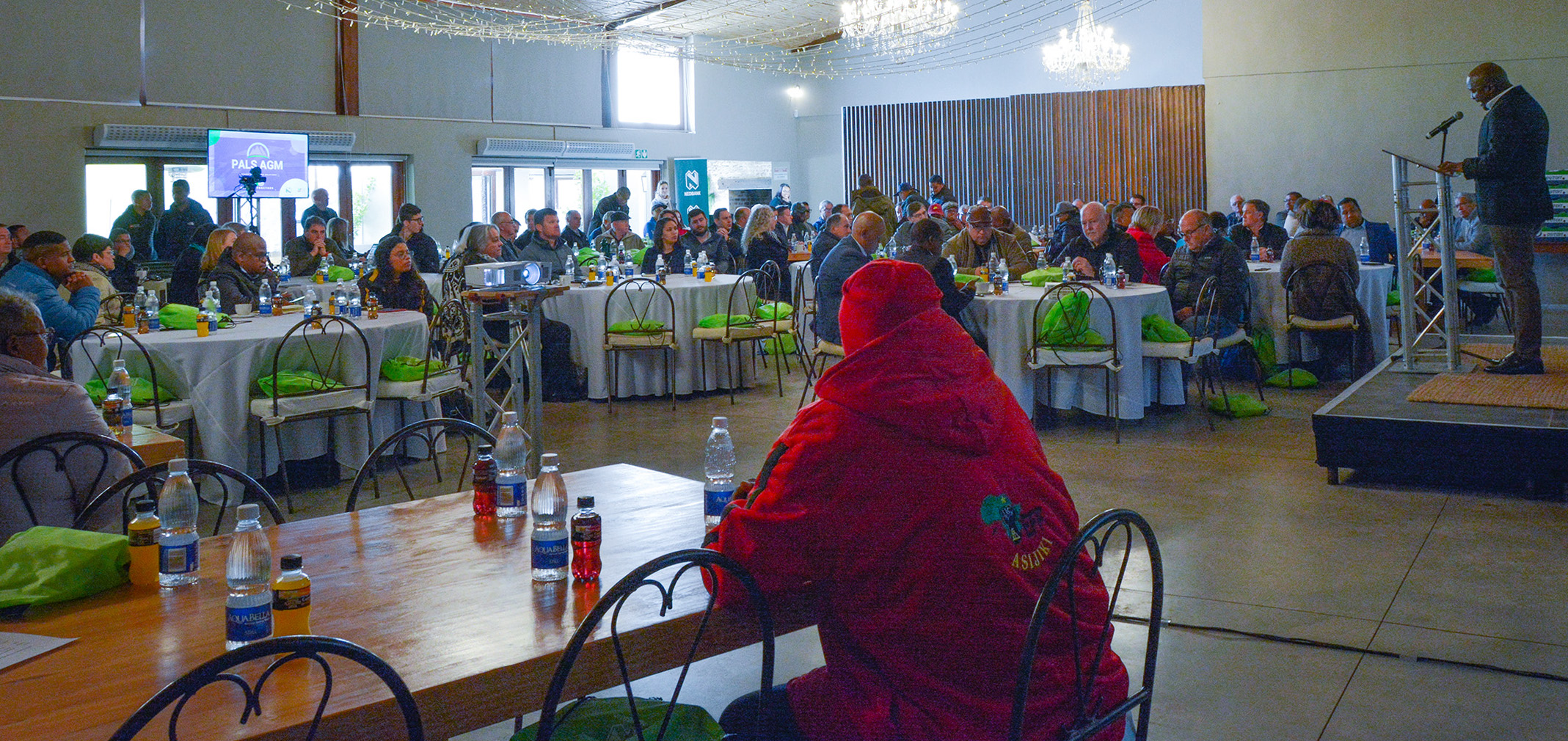
Pals AGM at Kaleo guest farm in Ceres on 24 August 2023. (Photo: Ziyanda Duba)
“An important source of the poverty-reducing benefits of agricultural growth is the widespread adoption of innovations that increase producer returns and wage labour opportunities and reduce consumer prices,” Sihlobo said.
Emerging commercial farmers in Witzenberg
During the tour in Ceres, we arrived at Loxtonia Farm, which forms part of Dwarsberg farming — a Pals project aiming to continue sustainable agricultural practices and establish successful commercial black farmers.
In 2017, Larry Whitfield bought the farm and, with Pals, empowered 10 of his long-time farmworkers to become shareholders — each owning 10% of the farm and involved in a function that is integral to running the farm.
The 77ha farm produces plums, pears, apples and stone fruit.
Packhouse manager and shareholder Liza Ambraal has been working at Loxtonia for more than 20 years, starting out as a sorter and working her way up. Ambraal said being a shareholder had uplifted not only her and her fellow shareholders, but also their families and communities.
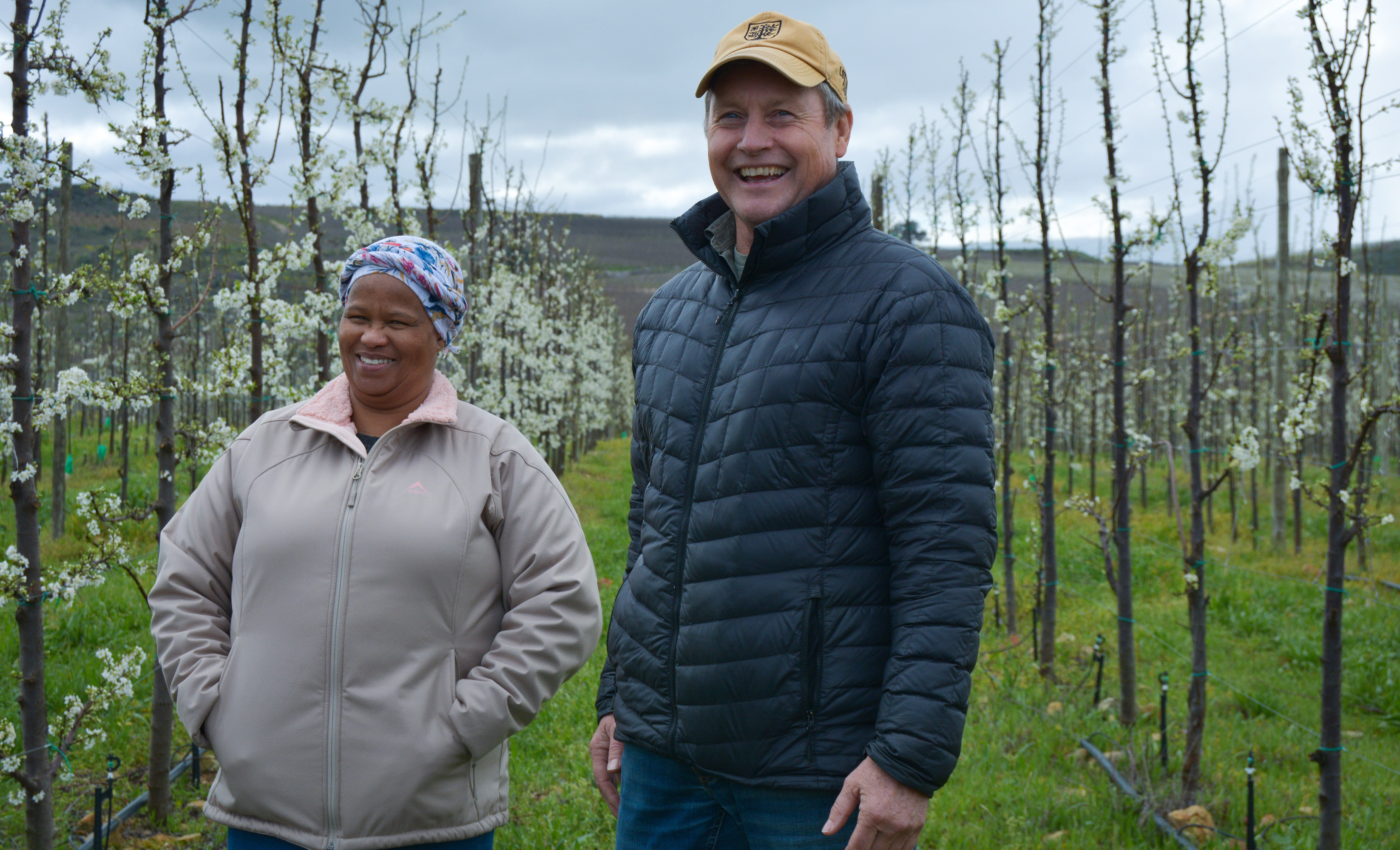
Liza Ambraal and Kobus Koegelenberg at Dwarsberg Operational in Ceres. (Photo: Ziyanda Duba)
This was the sentiment of all the emerging farmers, but it comes with significant challenges, including a lack of capital, resources, knowledge and mentorship of the process.
“The transition from farmworker to shareholder to landowner was difficult at the time and overwhelming because I never thought something like this could happen to me. But with the help of Pals and the training we get, they really help to bridge the gap between farmworker to shareholder,” Ambraal said.
La Vouere Stonefruit in Ceres was another farm showcased on the tour of transformation projects promoting the establishment of emerging black commercial farmers with Pals and Nedbank.
Raymond Koopstad explains that La Vouere Stonefruit was established in 2015 and became a Pals project in 2017, after several years of struggling to operate in a sustainable manner.
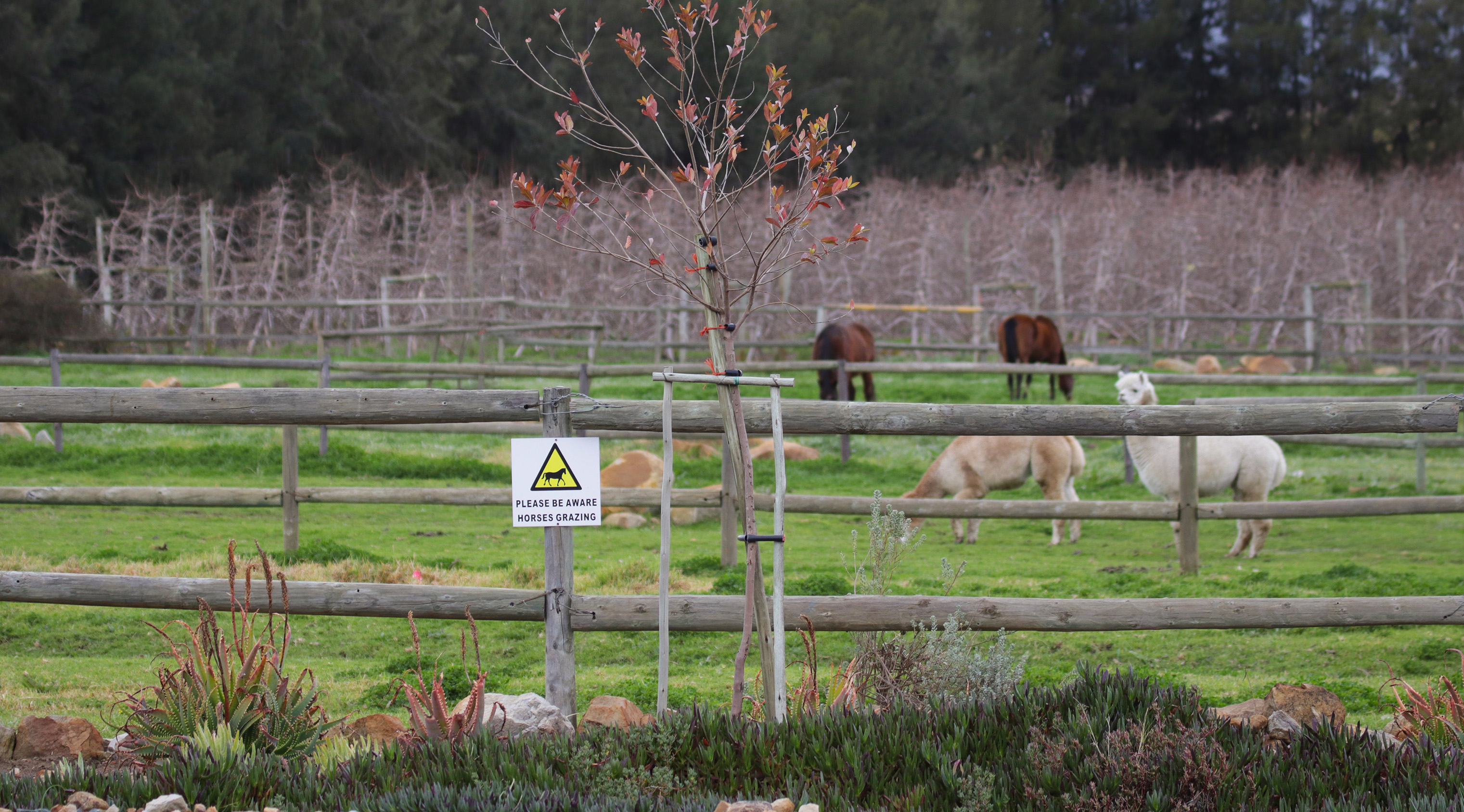
Dwarsberg Operational horse corral in Ceres. (Photo: Ziyanda Duba)
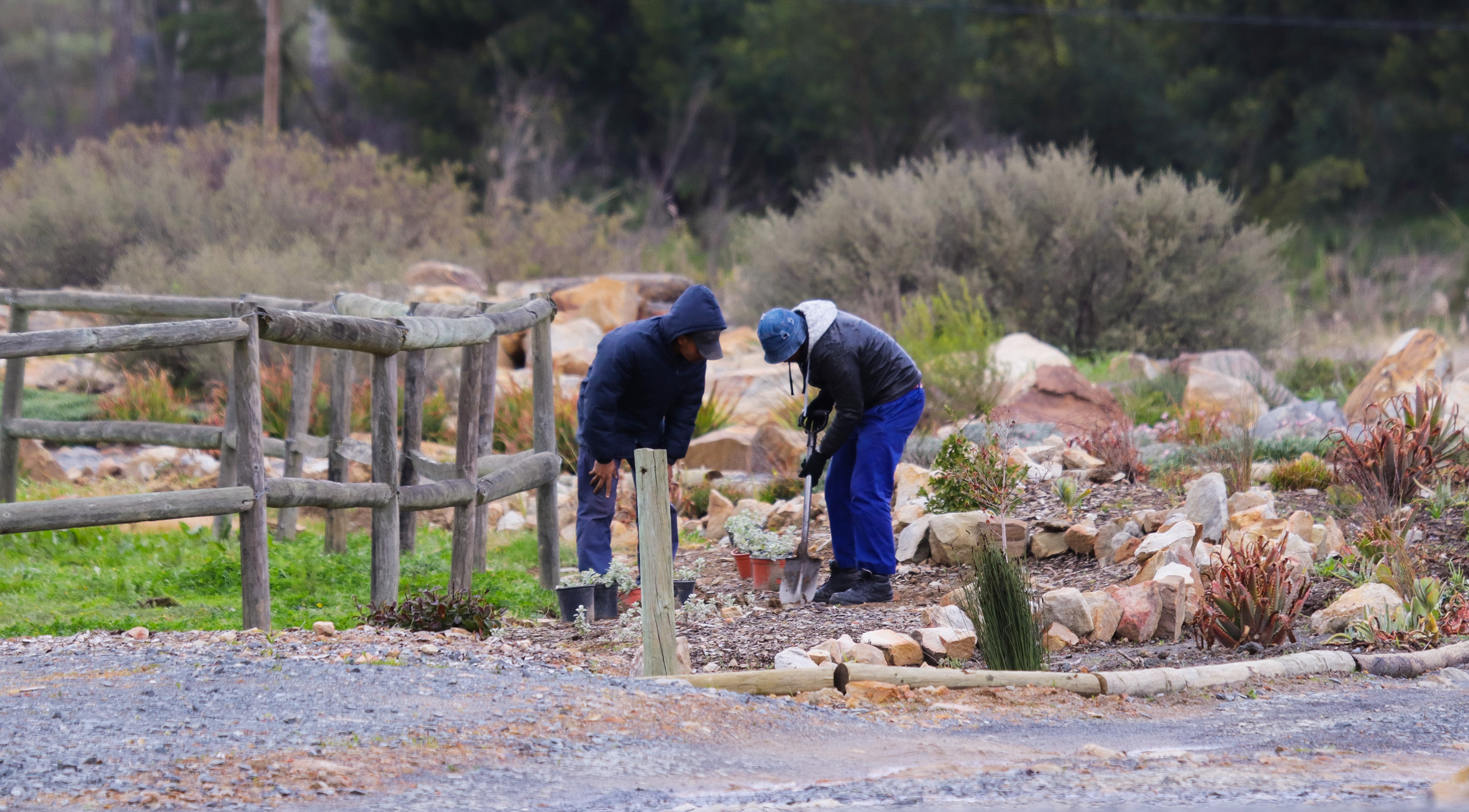
Farmworkers at Dwarsberg Operational in Ceres. (Photo: Ziyanda Duba)
They were very close to selling when Pals got involved. Peter Wolfaardt came on board to work with Koopstad as the commercial mentor.
La Vouere now covers 146ha and works with Verdun Estates as its commercial farming partner to produce stone fruit, specifically nectarines. They export mostly to the UK, Europe, the Middle East, Canada and the US, but are also getting into the SA market through supermarkets.
Koopstad said, “Our business focus is to have a successful, profitable and sustainable business here. We’re dealing with our environment as responsibly as possible and also with our workers and employees.”
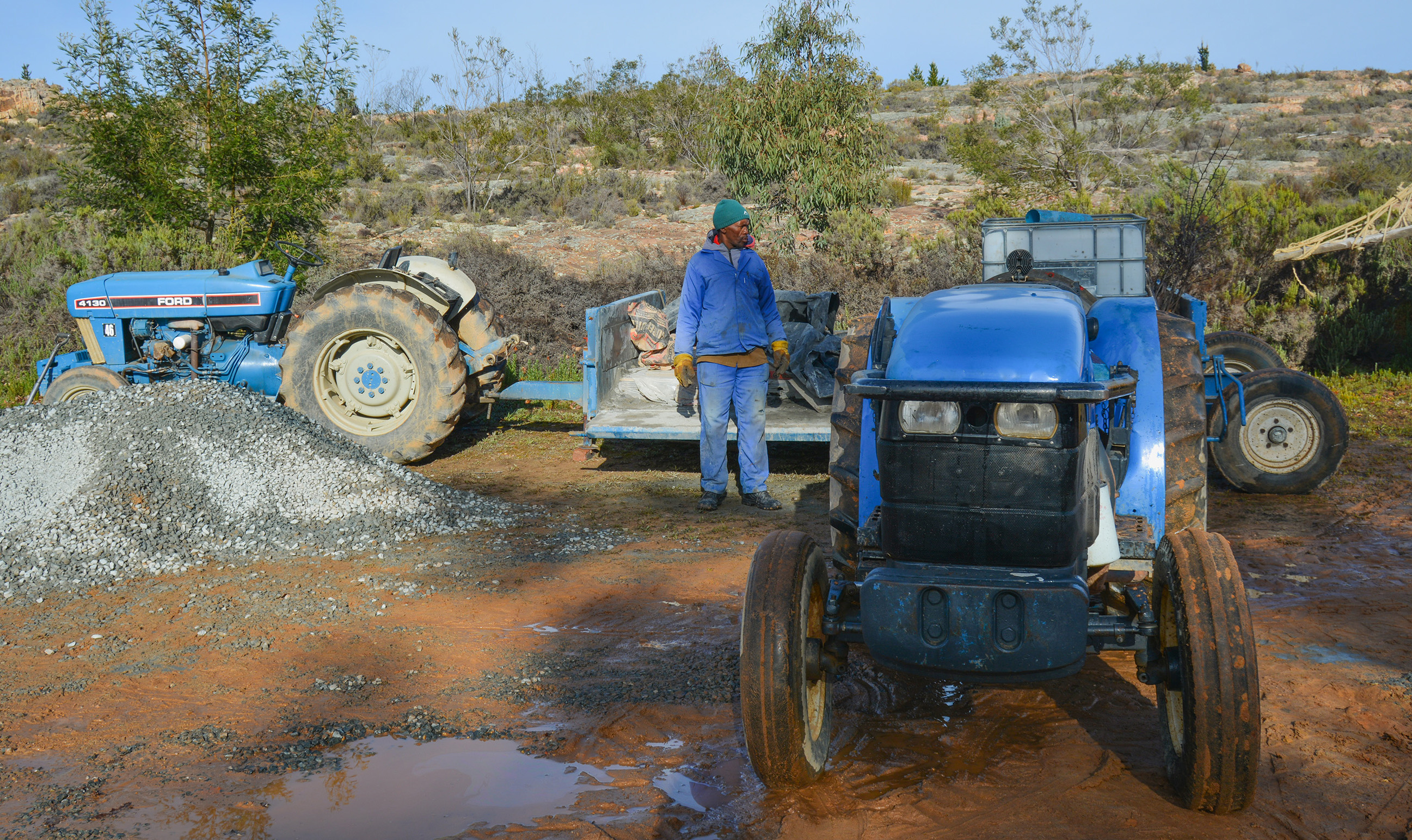
Retselitsitsoe Ndoanyai works on one of the farms in Ceres. (Photo: Ziyanda Duba)
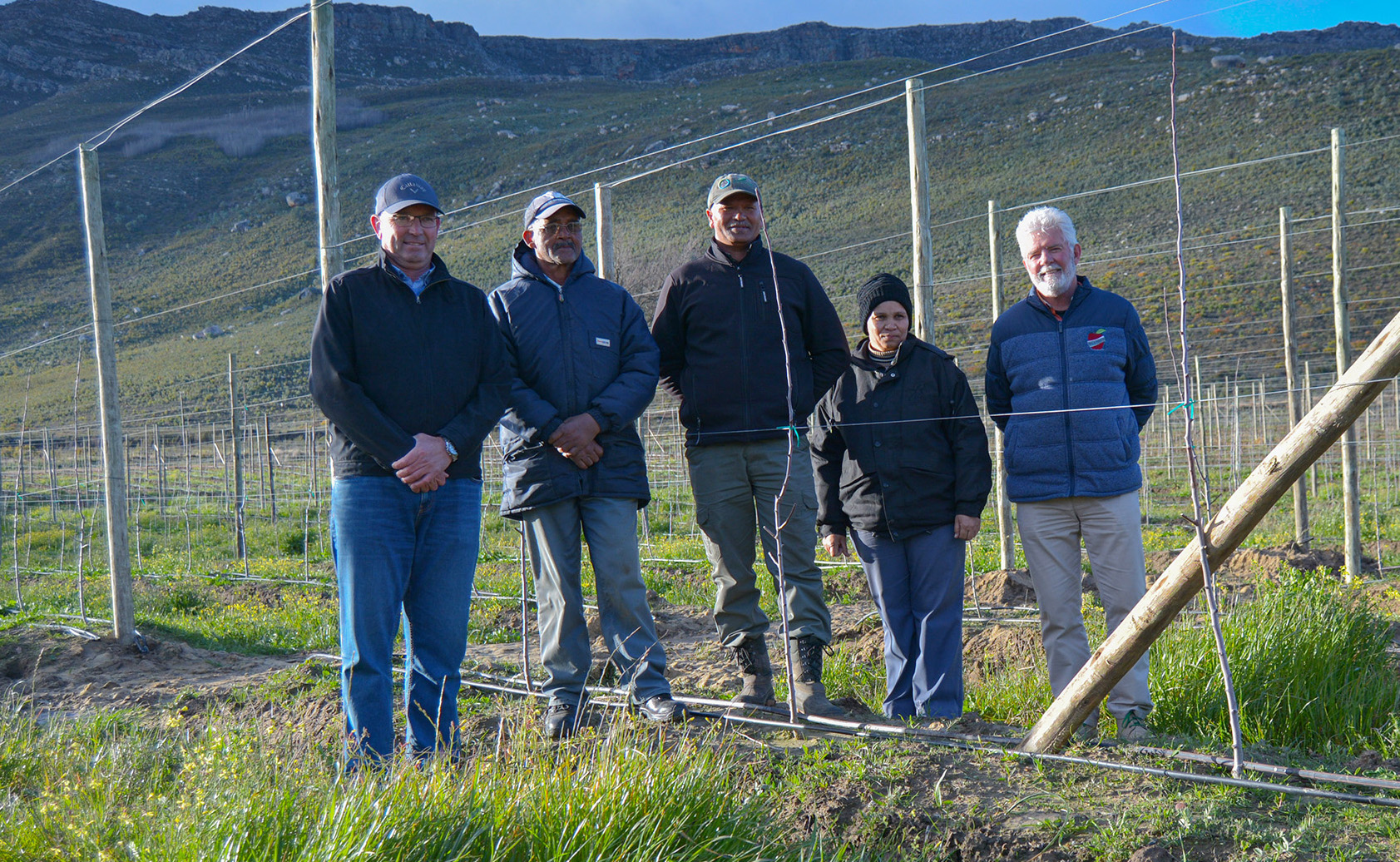
From left: Ceres Tierberg Boerdery team of Heinie du Toit, Bernard Engelbrecht, Johannes Kamfer, Shirley Engelbrecht, and Stokkies Hanekom from Ceres Tierberg Boerdery on one of the farms showcased on a tour of successful transformation projects promoting the establishment of emerging black commercial farmers with Partners of Agri Land Solutions and Nedbank. (Photo: Ziyanda Duba)
Although the business is doing well, Koopstad said load shedding remained a problem, while another challenge farmers faced was the impact of the European Union’s impending carbon tax on imported goods, as most agricultural businesses were carbon-intensive.
Koopstad said they had conducted an assessment of the feasibility of using solar power at La Vouere.
Land reform and climate change
“What’s important is that as we do land reform at this moment, we’re also cognisant that climate change is one of the important present-day challenges, which means that … farmers … have to ensure they apply climate-smart agricultural practices,” Sihlobo said.
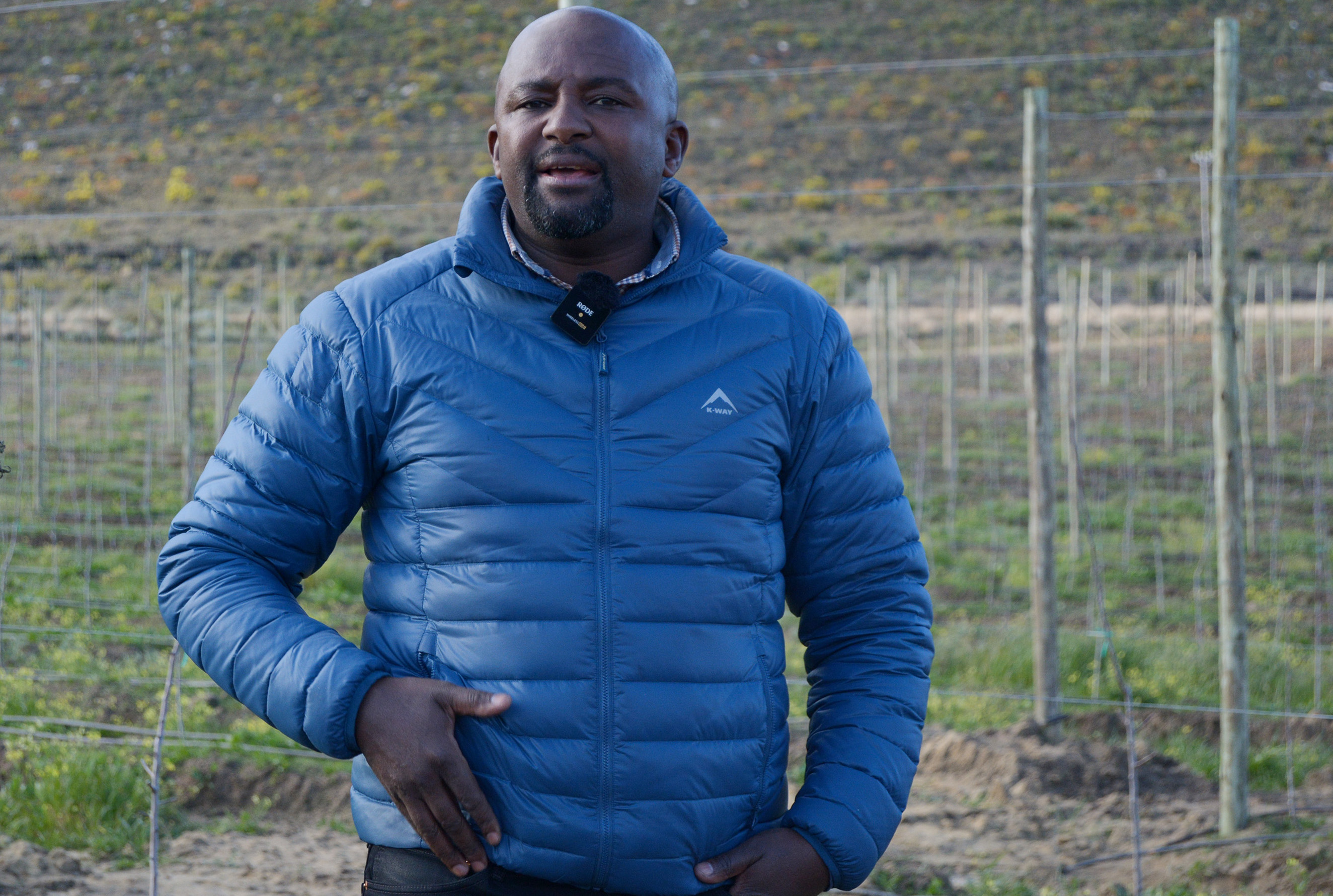
Lennox Plaatjies, Partners in Agri Land Solutions (Pals) operational manager. (Photo: Ziyanda Duba)
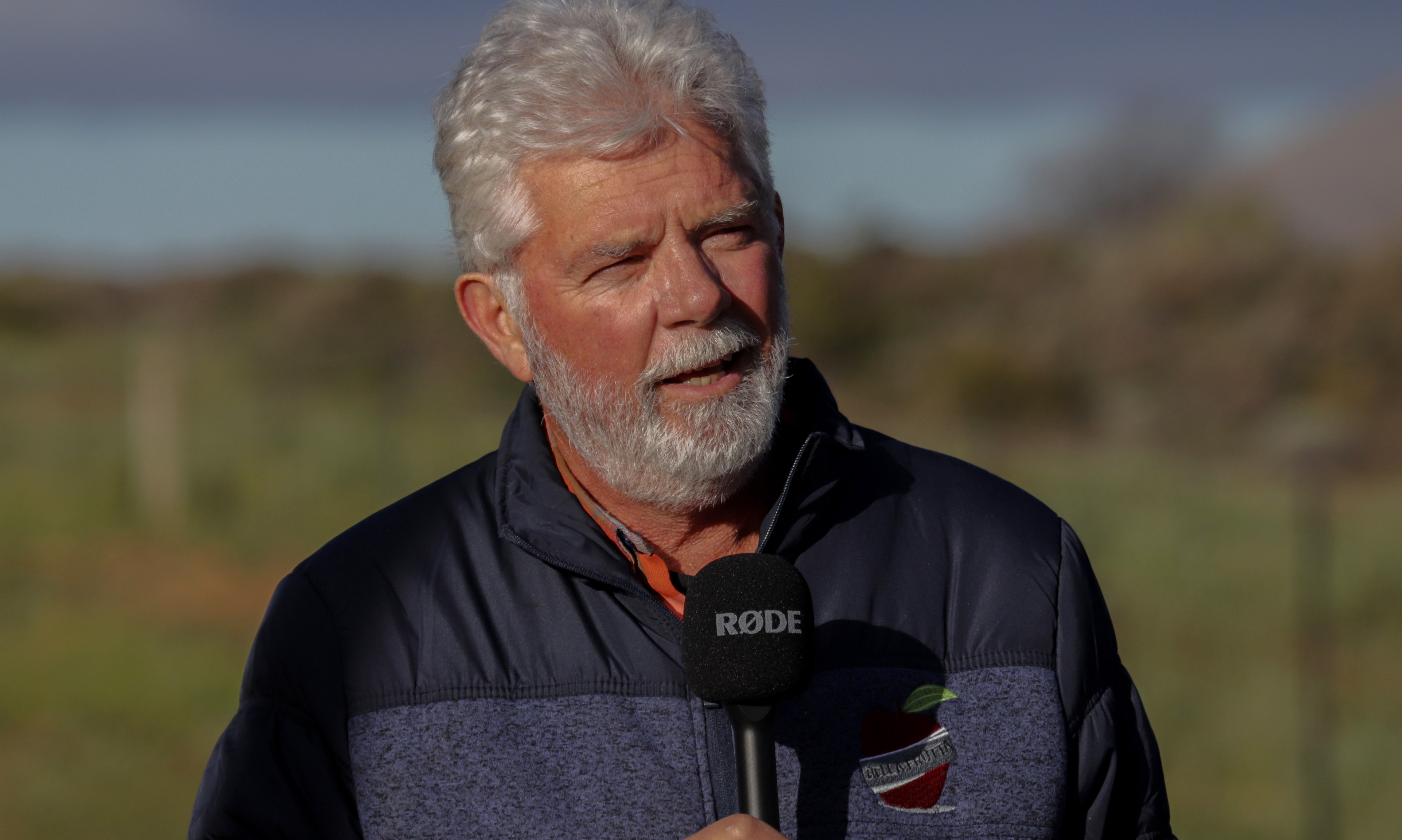
Stokkies Hanekom from Ceres Tierberg Boerdery — one of the farms showcased on a tour of successful transformation projects promoting the establishment of emerging black commercial farmers with Partners of Agri Land Solutions and Nedbank. (Photo: Ziyanda Duba)
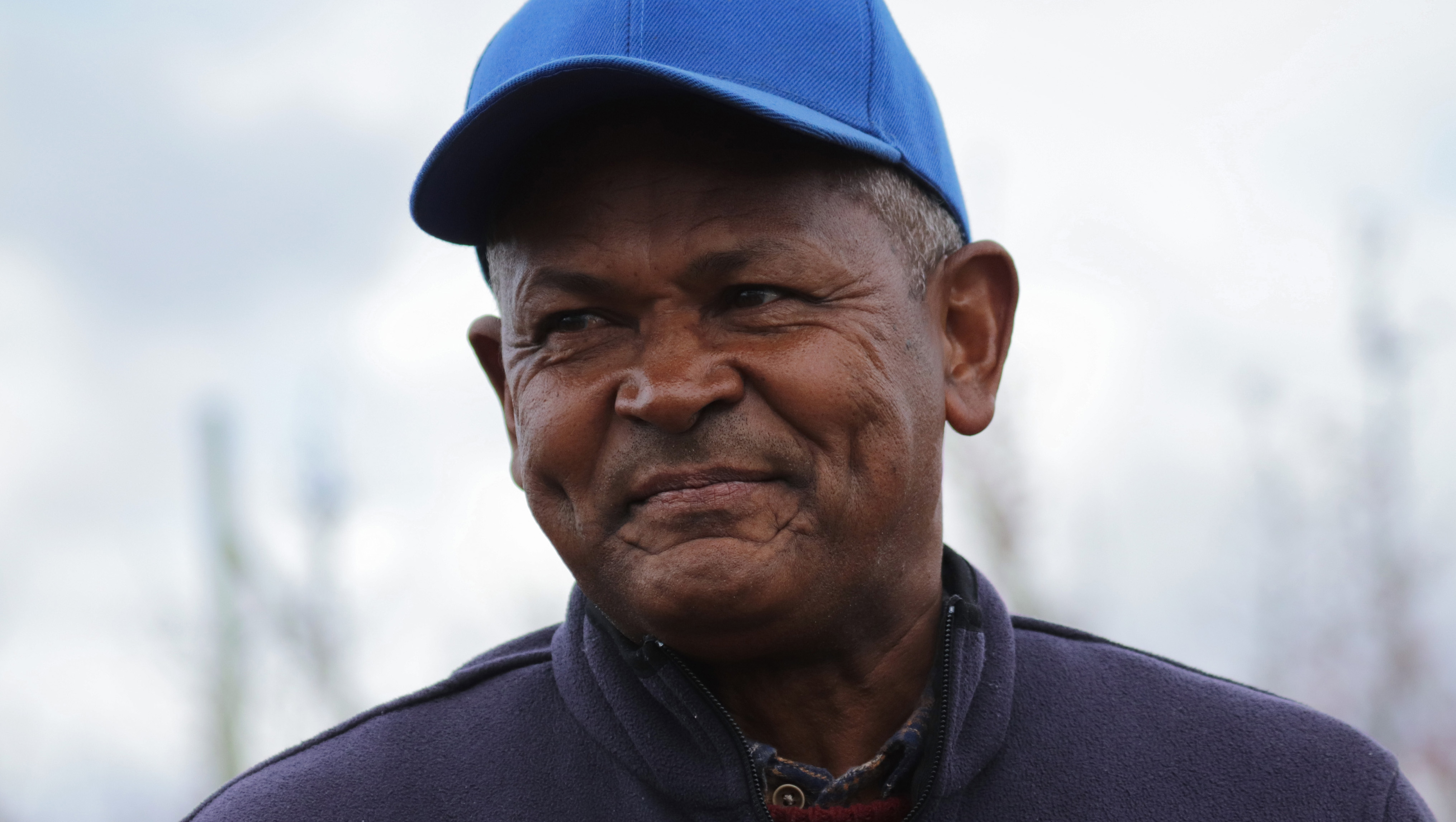
Raymond Koopstad from La Vouere Stonefruit in Ceres on a tour through his orchards with Witzenberg Partners in Agri Land Solutions (Pals). (Photo: Ziyanda Duba)
“If we have an agricultural sector that is highly productive, and also sensitive to climate change — which means producing in a more sustainable way — then we’ll be able to progressively deal with poverty … but of course, the most important thing is that we focus on commercialisation of agriculture for sustainability.”
Pals’ intention is to put things in place so that the mentor is able to pass on those sustainable agricultural practices through training and mentorship and by providing a supportive environment where the black farmers, as mentees, can ask them questions about sustainable agricultural practices.
Caitlyn Abdoll, agricultural economist at Witzenberg Pals, said: “When it comes to transformation projects and giving black farmers access to land, it’s not just about having the land. It’s what you are going to do on the land and having sustainable agricultural practices in place.
“As Pals, we see ourselves as custodians for the environment, so having good sustainable agricultural practices in place is very important so that we protect our land for future generations as well, so that they can also farm on it and provide food security to the surrounding communities.” DM


















 Become an Insider
Become an Insider
Comments - Please login in order to comment.